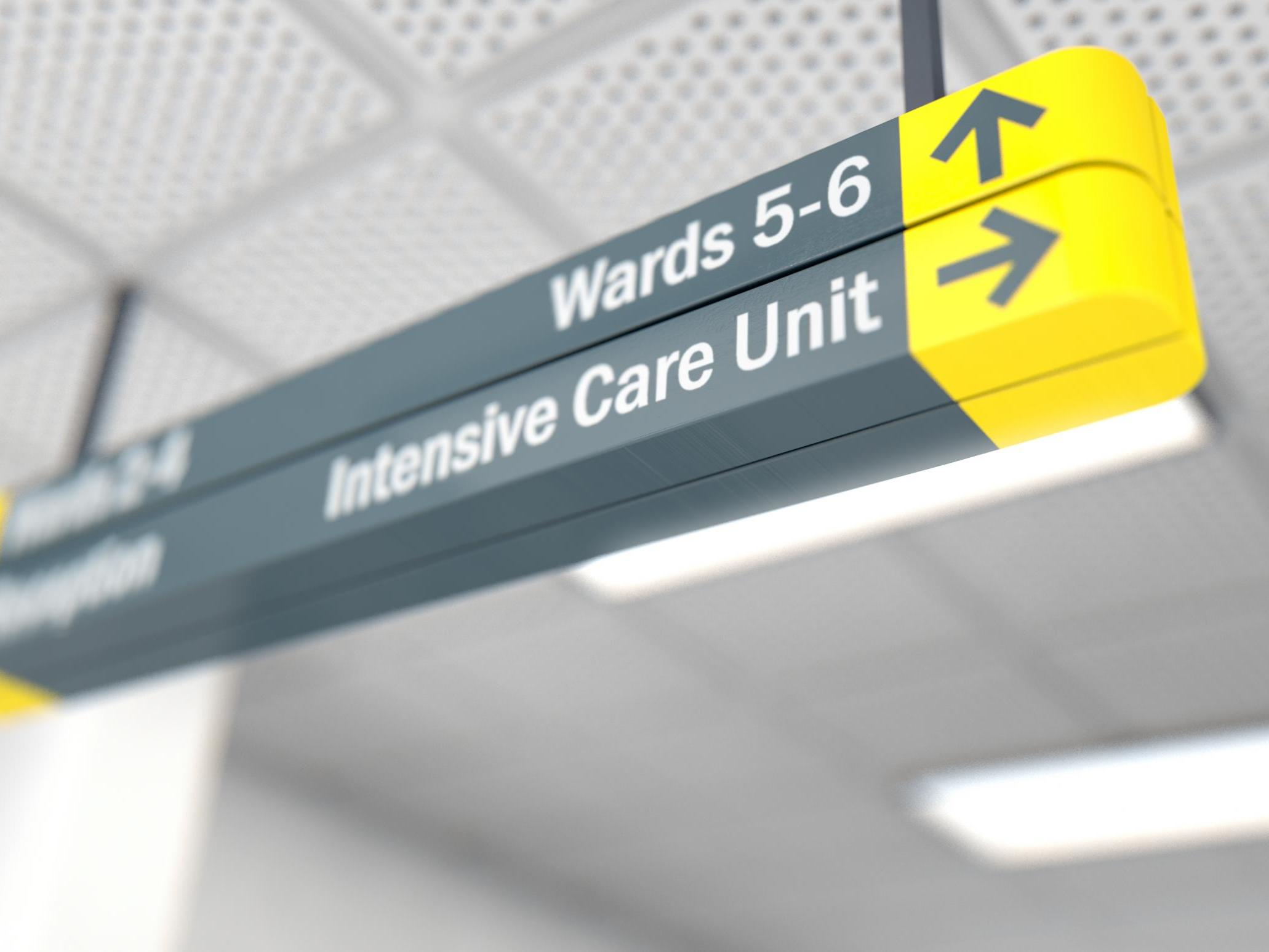This is what it’s like to experience the crushing silence of the intensive care waiting room day in, day out
In the midst of all the pain in the room, there is a palpable, thrumming sense of love just about keeping it afloat. As long as I live, I’ll never forget that feeling


When you see the same people every day for weeks, share the same warm, cloying air and get to know who likes what from the vending machine, though you barely speak, a kind of community is created.
There's a joining of souls in that sad, hot room lined with padded chairs, the intercom unhelpfully situated next to the doorway so you're forced to squeeze past anyone trying to buzz the nurse’s station to see their loved one.
The day after my dad’s heart transplant, only my mum went to visit him. He was in an induced coma following complications and they’d hooked his new heart – can we call it "his" yet? – up to an Extracorporeal membrane oxygenation (ECMO) machine to keep the blood pumping around his body.
His chest was left open. On the second day, we all went in. Me, mum, my two brothers, and my granny, dad’s mum.
There’s a separate waiting room for the Intensive Therapy Unit (ITU), away from the rest of the hospital, with the intercom and the vending machine and the knowledge that the families filtering in are as scared and as sleep-deprived as you.
We were the first there on that first visit. We buzzed, and two-by-two (because only two people can visit at once), we went to see our dad.
I have a phobia of hospitals, have done since I was admitted to an adult critical care ward at 16 years old with hepatitis, and a life-long propensity to faint at the sight of blood. It was not the ideal environment for me to become quite so familiar with. Dad’s kind nurse, Ellie, met me at the door to the unit and held my hand as I walked to the bed. I could only see his face; he was covered from the neck down by a billowing sheet they were apparently blowing hot air into to keep him warm, and he had what seemed like hundreds of wires and machines coming out of him from all angles.
A ventilator tube was sticking out of his mouth and his cheeks were loose and slack. His lip was bruised where they’d slipped putting the ventilator in. He didn’t look like my dad, who was strong and silly and grumpy. I touched his forehead and he felt cold and clammy. I lasted about 20 seconds before I had to leave and return to the waiting room, tears streaming.
Over the coming weeks, I’d spend a lot of time in the waiting room. My mum would spend the day sitting beside my dad, my brothers would come and go and I, aside from popping in and out of the unit for 10 minutes at a time to say hello to dad’s unconscious body and leave before I fainted, would sit on one of those leather chairs trying to read a book or do some work on my laptop. But mainly I would worry. And listen.
Naturally, the conversations that take place in the waiting room of an ITU are harrowing. They are full of sadness and fear. There was a woman of about 40 sitting by, presumably, her two teenage sons, faces stoically passive, didn’t once look up from their phone screens. She was on the phone to someone, telling them her husband had had a massive heart attack days before and was currently in a coma. She’d just signed a form for them to insert a tracheostomy. They didn’t know, yet, whether there was brain damage. We spoke to her briefly afterwards. Offered a sense of camaraderie, I suppose. Or at least tried to.
In those moments though, that are at once sterile and stilted yet full of empathy, there’s nothing really to be said. And eventually, they all leave to be by the bedside of their loved one.
In the midst of all the pain in the room, there is a palpable, thrumming sense of love just about keeping it afloat. It’s an uncomfortable environment, put simply, with peeling walls and old laminated notices on the notice board, full of human beings caring about other human beings.
Perhaps it shouldn’t feel as poignant as it does, as we all, hopefully, know what love feels like. And yet when it’s right there in such vast quantities, with a potent devotion I’d never seen before, well… I hold onto it as an antidote to my darkest moments.
We smile at one another, talk quietly amongst ourselves, say please and thank you and excuse me and look away when someone across the room is trying to shield their tears.
There was a father who was always there, either beside his son in the unit or in the waiting room with other family members, a chunky crossword book tucked under his arm. We didn’t speak, but we saw each other every day and smiled. One day, about a week and a half in, his wife walked past me on the way into the unit, put her hand on my shoulder and said, "your father is getting better, I hope?". I nodded and didn’t have a chance to return the kindness before she’d walked on.
There was a girl of about four in the waiting room just the one time, but I’d seen her family before. She was wearing her school uniform and was bored. She walked over to the low table in front of where I was sitting and picked up the television remote before declaring in a loud voice, "that’s my sister!", pointing to her mother. She ran from one side of the room to the other, flicking the TV on and off and singing, before her mother told her it was time to leave and she shouted at the top of her voice "bye ladies!". There were about four of us in the room at this point and we all, in unison, sang "byeeeee" back to her, and laughed. Moments like that, however run-of-the-mill, go a long way when the health of your person remains a permanent worry in your mind.
As time went on and we waited for my dad to recover, we noticed that the regulars we'd grown used to would stop coming eventually. We almost made a point of never saying goodbye to one another. There was just an unspoken understanding that when you left the room for good, it was either good news or bad news. Neither of which we particularly wanted to pry into.
Sometimes you’d see a wife walking behind the bed of a husband as he was wheeled over to the nearby ward. Out of intensive care, onto the next stage of recovery. And occasionally – once, in my experience – you’d see a family quietly sobbing, holding each other up. Moments later, a gurney would be rolled down the corridor.
My dad is now out of intensive care and when we arrive at the hospital we go straight to his ward – no need to ring the intercom and wait in the airless room. He is learning to walk again – his leg muscles having completely withered away after so many weeks motionless – and he’s talking about being home for Christmas and his first grandchild coming in December (not mine, my brother’s). I’ve bought him tickets to see a comedy show next year – stand-up comedy being our continuous shared love – and feel overwhelmingly grateful to have felt able to click "buy" at checkout.
I don’t know how the other families' loved ones are getting on, but occasionally I see those same faces in the car park or the canteen, cradling a coffee and staring into space. We still smile at one another. We still don’t speak. What we shared was sacred, but it was almost more sacred having shared it in respectful silence.


Join our commenting forum
Join thought-provoking conversations, follow other Independent readers and see their replies